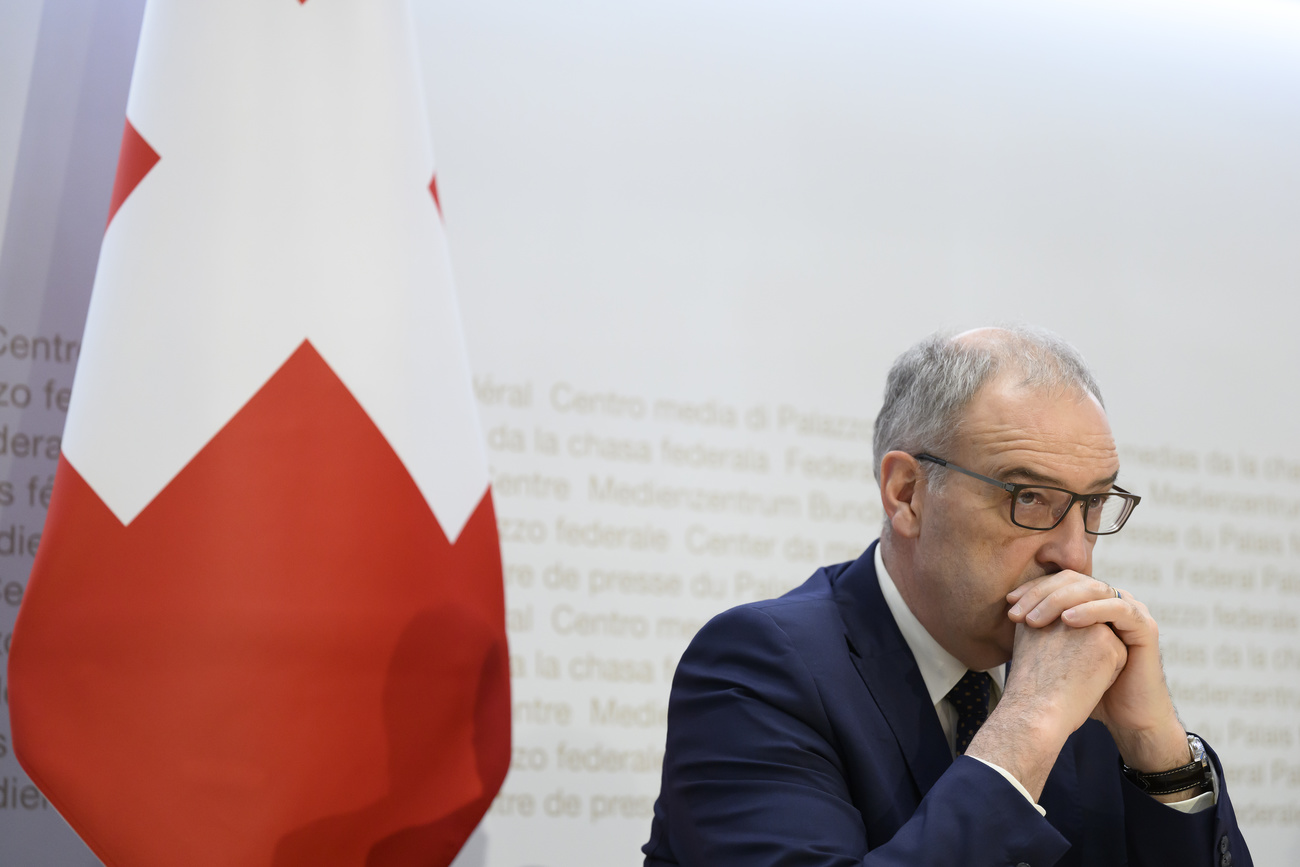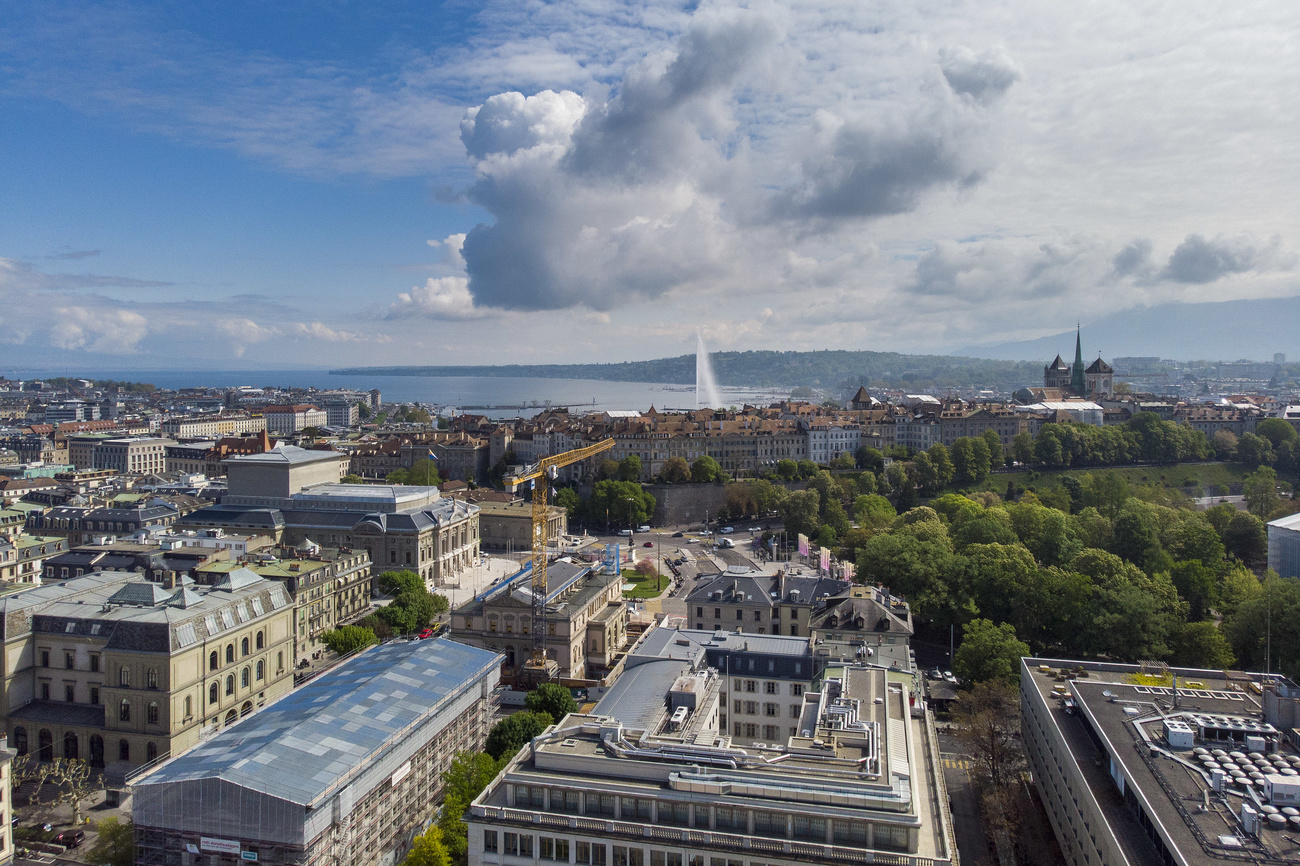
Parmelin raises concern over sanctions on commodities

Swiss Economics Minister Guy Parmelin has warned of the global consequences should sanctions be imposed on Russia for the commodities trade.
“I am against taking measures that lead to fresh problems elsewhere and further aggravate the global crisis,” he said in an interview with Schweiz am WochenendeExternal link published on Saturday.
If the European Union decides to implement these sanctions, the Swiss Federal Council (government) would have to analyse the move carefully to take into account the global side effects, Parmelin said
He therefore advised “caution” when it came to targeting commodity trading.
“Because this is not just about oil and gas, it is also about food,” Parmelin explained. Countries like Jordan, Tunisia and Egypt buy 50% to 90% of their grain needs from Ukraine or Russia. “If ships are blocked because of an embargo, many countries in the Middle East are at risk of hunger and destabilisation.”
But Switzerland could consider joining in if the EU decided that member states should keep a certain percentage of scarce goods from their reserves for third countries, Parmelin added.
Ukrainian harvest important
Parmelin called for a ceasefire in Ukraine as soon as possible. “Not only because of the war victims. But also because otherwise there’s the risk that crops won’t be sown in time in Ukraine. A crop failure this year would have serious consequences for global grain supplies,” he explained.
About 80% of Russia’s commodities are traded through Switzerland, making it critical to Russian exports, media reports say. Switzerland is also a major hub for Russian and Ukrainian grain and vegetable oil trading.
Neutral Switzerland last month decided to join the European Union’s sweeping economic sanctions against Russian individuals and entities – in an historic step for the country. But Swiss sanctions have not specifically targeted commodities. On Friday, the EU unveiled a fourth set of sanctions against Russia.
In related news, between 3,000 and 5,000 people demonstrated on Saturday in the Swiss capital for peace in Ukraine. They also called for an import ban on Russian gas in Switzerland.

More
Swiss trading hub adapts to new wartime reality

In compliance with the JTI standards
More: SWI swissinfo.ch certified by the Journalism Trust Initiative















![The four-metre-long painting "Sonntag der Bergbauern" [Sunday of the Mountain Farmers, 1923-24/26] had to be removed by a crane from the German Chancellery in Berlin for the exhibition in Bern.](https://www.swissinfo.ch/content/wp-content/uploads/sites/13/2025/12/01_Pressebild_KirchnerxKirchner.jpg?ver=f05a5a9c)














You can find an overview of ongoing debates with our journalists here . Please join us!
If you want to start a conversation about a topic raised in this article or want to report factual errors, email us at english@swissinfo.ch.